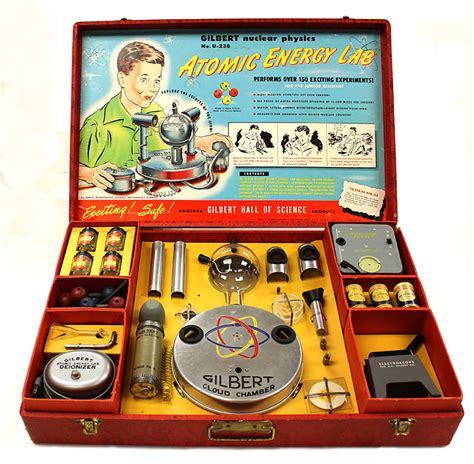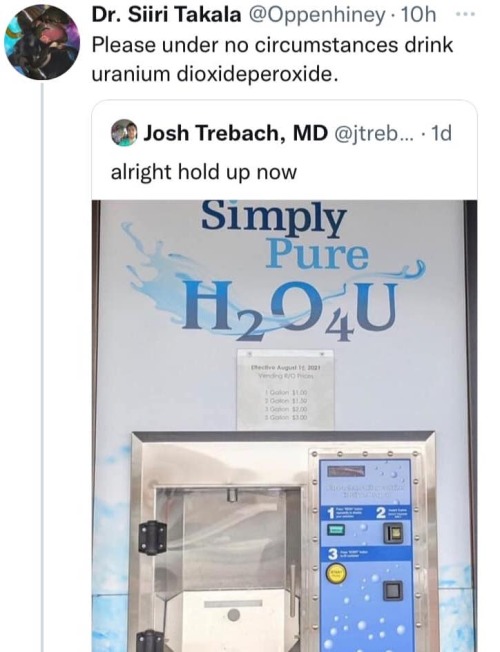Uranium - Tumblr Posts



Heads up! I will soon be changing my avatar to the picture above. Just letting you all know.
I need this PLEASE!


“Or perhaps you are listening to this on a vinyl record”
“We’ve all been spinning round and round and round..”
Why are they mining so much right now?

Cobalt has become the center of a major upsurge in mining in Congo, and the rapid acceleration of cobalt extraction in the region since 2013 has brought hundreds of thousands of people into intimate contact with a powerful melange of toxic metals. The frantic pace of cobalt extraction in Katanga bears close resemblance to another period of rapid exploitation of Congolese mineral resources: During the last few years of World War II, the U.S. government sourced the majority of the uranium necessary to develop the first atomic weapons from a single Congolese mine, named Shinkolobwe. The largely forgotten story of those miners, and the devastating health and ecological impacts uranium production had on Congo, looms over the country now as cobalt mining accelerates to feed the renewable energy boom—with little to no protections for workers involved in the trade.
The city of Kolwezi, which is 300 km (186 miles) northwest of Lubumbashi and 180 km from the now-abandoned Shinkolobwe mine, sits on top of nearly half of the available cobalt in the world. The scope of the contemporary scramble for that metal in Katanga has totally transformed the region. Enormous open-pit mines worked by tens of thousands of miners form vast craters in the landscape and are slowly erasing the city itself.
[...]Much of the cobalt in Congo is mined by hand: Workers scour the surface level seams with picks, shovels, and lengths of rebar, sometimes tunneling by hand 60 feet or more into the earth in pursuit of a vein of ore. This is referred to as artisanal mining, as opposed to the industrial mining carried out by large firms. The thousands of artisanal miners who work at the edges of the formal mines run by big industrial concerns make up 90 percent of the nation’s mining workforce and produce 30 percent of its metals. Artisanal mining is not as efficient as larger-scale industrial mining, but since the miners produce good-quality ore with zero investment in tools, infrastructure, or safety, the ore they sell to buyers is as cheap as it gets. Forced and child labor in the supply chain is not uncommon here, thanks in part to a significant lack of controls and regulations on artisanal mining from the government.

[...]When later atomic research found that uranium’s unstable nucleus could be used to make a powerful bomb, the U.S. Army’s Manhattan Project began searching for a reliable source of uranium. They found it through Union Minière, which sold the United States the first 1,000 tons it needed to get the bomb effort off the ground.
The Manhattan Project sent agents of the OSS, precursor to the CIA, to Congo from 1943 to 1945 to supervise the reopening of the mine and the extraction of Shinkolobwe’s ore—and to make sure none of it fell into the hands of the Axis powers. Every piece of rock that emerged from the mine for almost two decades was purchased by the Manhattan Project and its successors in the Atomic Energy Commission, until the mine was closed by the Belgian authorities on the eve of Congolese independence in 1960. After that, the colonial mining enterprise Union Minière became the national minerals conglomerate Gécamines, which retained much of the original structure and staff.
[...]Dr. Lubaba showed me the small battery-operated Geiger counters that he uses in the field to measure radioactivity. He had begun the process of trying to find and interview the descendants of the Shinkolobwe miners, but he explained that tracing the health consequences of working in that specific mine would be difficult: Many long-established villages in the area have been demolished and cast apart as cobalt extraction has torn through the landscape. His initial inquiries suggested that at least some of the descendants of the Shinkolobwe miners had been drawn into the maelstrom of digging in the region around Kolwezi.

In her book Being Nuclear: Africans and the Global Uranium Trade, historian Gabrielle Hecht recounts the U.S. Public Health Service’s efforts to investigate the effects of uranium exposure on people who worked closely with the metal and the ore that bore it. In 1956, a team of medical researchers from the PHS paid a visit to Shinkolobwe while the mine was still producing more than half of the uranium used in America’s Cold War missile programs. Most of their questions went unanswered, however, as Shinkolobwe’s operators had few official records to share and stopped responding to communications as soon as the researchers left.
[...]“Don’t ever use that word in anybody’s presence. Not ever!” Williams quotes OSS agent Wilbur Hogue snapping at a subordinate who had said the mine’s name in a café in Congo’s capital. “There’s something in that mine that both the United States and Germany want more than anything else in the world. I don’t know what it’s for. We’re not supposed to know.”
My fiancee and I were discussing the worst metal to use to make armor, and the obvious answers are lead and gold, but she cunningly suggested mercury. Which is a fair point, but then I wondered if solid mercury is any good. Googling told me that the melting point of mercury is -38° c (-37° f), so first you get it really fucking cold. At that point, it turns out that mercury has a tensile strength of 1900 mpa, compared to lead’s 18 and steel’s ~500-940 (depending upon the kind of steel).
Now, I know that tensile strength is not necessarily the best measure of a material’s ability to function as armor, but I’m a liberal arts major and didn’t care to actually do that much more research before going straight to, “EVIL ICE DEMONS IN MERCURY ARMOR. THE PCS CAN’T LOOT IT BECAUSE WHEN THEY PUT IT ON IT MELTS AND KILLS THEM.”
source

On Friday, a group of protestors walked on Highway 89 in Cameron, Ariz., protesting Pinyon Plain Mine owner Energy Fuels trucking uranium ore through the Navajo Nation to Utah. Uranium has a long history of impacts on the Navajo Nation and its people since the 1940s. "We've seen the effects of these things in the past on our land, the spills into our rivers, into our communities, the residual effects on our on our health, of our children, our elders," Cameron resident Adair Klopfenstein said. "It's awful, and we don't want it to happen again." The Pinyon Plain Mine, formerly known as Canyon Mine, began mining uranium ore in December and is expected to be actively mining for at least five years. The company had told 12News at the end of June it would start transporting the uranium ore to a mill in southeast Utah in July or August. That hauling appears to have started before the pause was put in place. "I call it illegal smuggling across our border and then through the Navajo Nation," Navajo Nation President Buu Nygren said.



And from June:


Yes, I would like some popcorn 👀
OF COURSE! Pick a flavor my friend!

We got the classic popcorn!
We got strawberry popcorn!
We also got blue! If you find out what flavor blue is, do tell me before I have no fucking Idea :D
We got r a d i o a c t i v e . With Uranium seasoning.
And we also got...
OVER SATURATED FLAVOR🔥🔥💥
I don't know how I got this but I'm selling it! limited time only for 5,99!! What a steal 🎺🎺🎺
(yet-happy's products may cause constant twerking, in case you feel anything else you'll need a doctor)
@manndraki You would get this
If you ever feel stupid just remember someone once looked at fucking uranium, an extremely radioactive element that can kill you just be existing too close to it, and thought 'I could totally market that to kids'
Aka, The Gilbert Atomic Energy Laboratory, released in 1950.
A toy chemistry set that came with actual FUCKING URANIUM, AND order forms to get MORE FUCKING URANIUM.



The gist of the set was that you could make and watch nuclear reactions with the uranium it came with, measure the radioactivity from said uranium and other ores, and even potentially dig up more uranium outside with a dig kit the set provided for you.
As you can imagine, this act of stupidity was recalled after 1 year, after people realized that maybe irradiating their fucking children was a bad idea.
I want to eat uranium . I think it would taste like sour candy . Anyone else want to eat uranium or am I just crazy

I think Tumblr deserves to know about the sheer amount of uranium dishes I saw today




